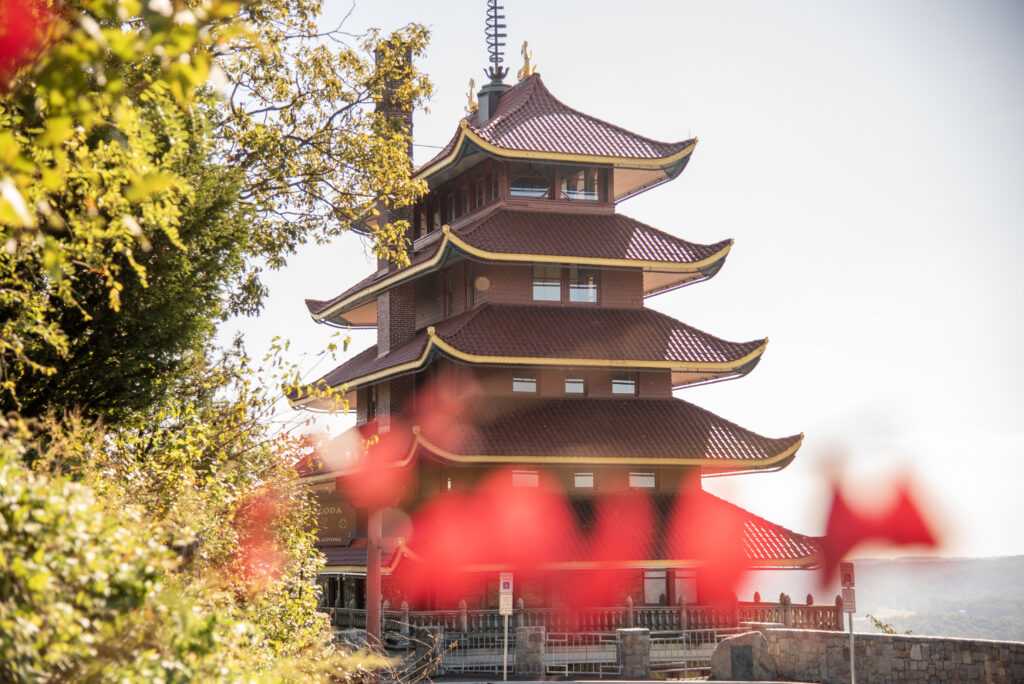First Responders First Fund
The First Responders First Fund supports the costs associated with mental health treatment for first responders in the City of Reading.
Distributions from this fund will support the costs associated with mental health treatment for first responders in the City of Reading. Applicants must be currently employed by the City of Reading as firefighters, police, or EMS.
If you have questions about this fund, contact Health & Human Services Program Officer, Cindy Milian, at cindym@bccf.org
Cathy and Doug Weaver Fund
The Cathy and Doug Weaver Fund supports animal welfare, the environment, and/or health and human services in Berks County. Grants are awarded annually in those areas of focus. There is no application for this fund. If you have questions about this fund, please email Cindy Milian, Health and Human Services Program Officer of Berks County Community Foundation, at cindym@bccf.org.
The Angel Fund
The Angel Fund will provide financial support directly to or on behalf of individuals in an extraordinary situation where a nominal amount of intervention is likely to yield life changing outcomes. If you have questions about this fund, please email Cindy Milian, Health and Human Services Program Officer of Berks County Community Foundation, at cindym@bccf.org.
Berks County Transition Coordinating Council Mary Mazzoni Scholarship
The Berks County Transition Coordinating Council (BCTCC) Mary Mazzoni Scholarship supports graduating high school seniors with disabilities as they transition from school to postsecondary education and training. Students will be recognized for their determination, resilience, and commitment to pursuing a career path that aligns with their skills and aspirations.
Applicants must be high school seniors in Berks County with a documented disability.
Sacred Places Project
Berks County is home to hundreds of houses of worship in both the urban and rural areas, many built throughout the 1700s and 1800s. These buildings have been vital cultural vehicles that have helped knit the fabric of our cultural heritage for generations. But these sacred places are at risk, like many others across America. With this threat to Berks County’s places of worship in mind, it’s important to preserve the contributions that are being made in the community; these spaces are ubiquitous in our communities, forming an integral part of social safety nets. This started the “Sacred Places” project to set out to build an inventory of the purpose-built places of worship within the city.
Berks County Community Foundation is collaborating with Partners for Sacred Spaces, a Philadelphia-based nonprofit that brings people together to find creative ways to maintain and make the most of America’s older and historic houses of worship.
For more than five years, Partners for Sacred Places and Berks County Community Foundation have collected the history of local houses of worship, assessed the condition of the buildings and the stability of their congregations, and encouraged partnerships to preserve these sacred places.
As a result, the Community Foundation will continue its partnership with Partners for Sacred Places in 2024 to provide its New Dollars/New Partners program. Several congregations spanning across denominations, locations, sizes, and missions – will have the opportunity to focus on building capacity to better serve their communities as anchor institutions, nurture transformation, and shape vibrant, creative communities.
Foundation for the Reading Pagoda Fund
The fund supports the restoration of the Reading Pagoda.

By MICHELLE LYNCH | mlynch@readingeagle.com | Reading Eagle PUBLISHED: November 14, 2023 at 2:15 p.m. | UPDATED: November 14, 2023 at 2:18 p.m. Original story click here.
The future of Reading’s Pagoda will depend on support from the greater Reading community.
The public and private support is needed to raise the approximately $10 million it will cost to repair and restore the Pagoda and surrounding walls, stairs and walkways on Mount Penn, city Councilwoman Marcia Goodman-Hinnershitz said.
Goodman-Hinnershitz and council President Donna Reed serve as council representatives to the Foundation for the Reading Pagoda, which was established in 2014 to assist in the preservation, enhancement and maximum community use of the property.
They and fellow foundation member Mike Reinert spoke at a recent virtual forum focusing on the Pagoda.
The hourlong event was hosted by Berks Alliance, an organization that works to advance community development in Berks County.
The object was to update the public on the status of the iconic building, which has been closed to the public since the start of the COVID-19 pandemic.
City officials say it will remain closed until upgrades to the building can be made.
Arguably the city’s best-known landmark, the Pagoda on Mount Penn recently underwent a complete condition assessment. STV Inc., a Douglassville engineering service, examined all aspects of the 115-year-old building, including its structural elements, finishes and mechanicals.
The city is committed to restoring the Asian-inspired building and stabilizing and improving the associated structures, Reed and Goodman-Hinnershitz said.
City Council introduced an ordinance Monday that will allocate remaining balance of about
$32 million in American Rescue Plan Act funding for public projects. This includes a set-aside of $3 million for repairs to the Pagoda.
But that is just a start.
Repairing and stabilizing the walls, walkways and stairs surrounding the Pagoda is expected to cost the city an additional $7.55 million, said Jim Boisseau of JMT Engineering, which completed an engineering study of the built environment surrounding the landmark. Raising the approximat
ely $10 million needed for the building and grounds will take a larger community effort, Goodman-Hinnershitz said.
To get things started, she said, the Foundation for the Reading Pagoda has put $100,000 into an account set up through the Berks Community Foundation.
Goodman-Hinnershitz said $36,000 of the $100,000 was raised through a Pennies for the Pagoda campaign years ago. The campaign encouraged children across the county to donate coins in classroom penny jars.
“We want to revitalize that same kind of concept,” the councilwoman said, “because we know from the grassroots level, from our children and families through large donors, we have the potential to raise that $10 million.”
Goodman-Hinnershitz said there must be ongoing dialogue with and involvement of community partners and stakeholders.
The Pagoda foundation also is looking to partner with state and county government on the project, she said. And because the building is listed on the National Register of Historic Places, she noted, there could be some opportunities for grant funding.
But the community investment is going to be important, she stressed.
Community input also is important in deciding how best to use the property after the repairs are completed.
Reinert said a recent survey provided some insights.
Of the 160 people who responded, 117 indicated they live in Berks County. More than half of the respondents said they visit the Pagoda at least once a year and 85% said they have taken out-of-town guests to the site.
“So they’re not just visiting the Pagoda,” Reinert said. “They’re bringing people with them to share their enthusiasm.”
Another question, he said, asked about the top three activities at the Pagoda.
Looking at the view and taking photographs were the top answers, Reinert said, followed by walking the grounds and going inside.
Over half the respondents said they spent at least 30 to 45 minutes at the site, and another 40 people said they spent at least an hour or more.
“So, you know a lot of people do want to get there and invite people and stay there and enjoy it,” he said.
The survey also asked people to provide ideas for what they would like to see inside the Pagoda.
The responses included museum-type exhibits, a display detailing the history of the Pagoda and expanded opportunities for refreshments.
Concerts, festivals, car shows, bicycle races and cultural events on the property also were suggested, Reinert said, along with the ability to rent rooms for meetings and special events.
“And yeah, somebody suggested zip lines,” he said. “I’m not sure about that one. I’m not sure if it goes up or over to Neversink Mountain.”
That idea might not be practical, he said, but the input shows people in Berks and beyond are enthusiastic about the Pagoda and its possibilities.
“All of us have to be part of this,” Goodman-Hinnershitz said, “because the tipping point right now is if we don’t do the work that’s needed, the Pagoda will be damned.”
To contribute to the Pagoda restoration fund visit bccf.fcsuite.com/erp/donate/create/fund?funit_id=2881.
The Innovation Fund
The Innovation Fund provides grants to projects focused on improving environmental health and climate resiliency in Berks County. Projects that include collaboration across sectors and/or opportunities for partnership building will be prioritized. For more information on environmental health and climate resilience, refer to the recent study for Berks County, conducted by the Institute for Conservation Leadership.
Projects can include but are not limited to:
- New approaches to strengthen environmental health and climate resiliency, including research into new approaches.
- Small-scale implementation/construction of environmental best management practices (e.g. planting trees and native shrubs, community gardens, etc.)
- Support to obtain state or federal funding
- Education and outreach
- Project planning and development
Applicants are strongly encouraged to contact Emily Smedley, Environment and Energy Program Officer, with project ideas before starting the application. After you have submitted your application, Emily may reach out to applicants to discuss the project in greater detail.
BISA Attendance Improvement Fund
This fund supports initiatives at Berks County’s public schools that improve attendance.
Royals Youth Hockey Fund
This fund provides financial support for youth to participate in ice hockey lessons, camps, clinics, or leagues.

Boyertown Area Charitable Program
The Boyertown Area Charitable Program provides grants for programs that improve the quality of life for the residents of the Boyertown Area School District. The program distributes grants from the Boyertown Area Community Fund and the Boyer Foundation Fund.
The Boyer Foundation Fund was established to support Boyertown area health, social, recreational and safety organizations. The fund was created in memory of Daniel and Blanche Boyer, who were lifelong Boyertown residents and community leaders.
The Boyertown Area Community Fund was established to support charitable programs within the geographic area served by the Boyertown Area School District.
This opportunity provides multiple grants with awards totaling approximately $65,000 each year. Applications are due by August 15. Decisions will be announced by the end of October.


